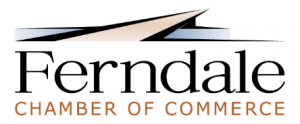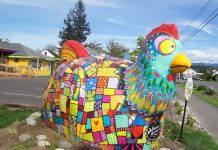“If there is a book you want to read but isn’t written yet, write it.” This straightforward advice comes from author Shel Silverstein in Roger Was a Razor Fish, and Other Poems. WWU Emeritus Professor Nancy J. Johnson pictured a conference that wasn’t created yet, so she built it—one that supports children’s literature and those who create it, teach it, share it, and just enjoy it. Now in its seventeenth year, the Western Washington University Children’s Literature Conference brings 600 annual attendees in contact with visiting working authors for a day of inspiration, education, and community.
Four key things to know: It is always the last Saturday in February. It is for grown-ups, despite the focus on youth literature. It is already sold out for February 29, 2020, but…there’s an additional opportunity to attend a free “unconference” the following day.
As for other important things to know, that list could start with Nancy’s original motivation, move to the huge community of organizers and attendees, and perhaps culminate in the stellar list of authors the CLC has brought to Bellingham over the years. But the overarching importance of this conference lies in its unwavering positivity. Even the conference website assures attendees the goal is to inspire their reading, writing, teaching, and learning with deeper intensity and joy.
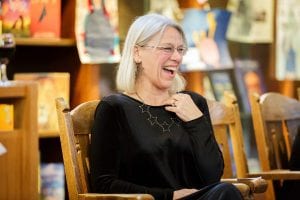
Sylvia Tag is a librarian and an associate professor at WWU, the curator of the Children’s Literature Interdisciplinary Collection, and a long-time member of the Children’s Literature Advisory Board and Planning Team that crafts the conference. “This doesn’t feel as much like a conference as a day of refreshment. The conference part is where the authors share their creative process—not like a book talk, this is a whole different level—and the term conference would be appropriate there,” she says. “But unlike a regular conference where you might feel drained at the end of the day, you come and spend the day and you leave ‘filled up.’ The majority of attendees feel energized and filled with ideas and hope.”
This makes sense, since the original idea for the conference wasn’t as much about books and authors as it was about access and inspiration. “About 20 years ago I had this dream,” says Johnson, who recently retired as a professor of English specializing in Education and Children’s and Young Adult Literature. “I felt very lucky to be in a role where I attended conferences and had all this wonderful interaction with authors and ideas, and had opportunities to hear speakers and learn things. I felt sad that most of our local community didn’t have that chance.”
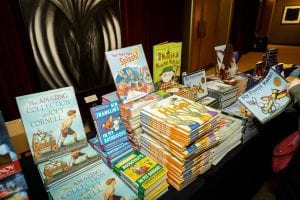
Johnson worked to build a team, get funding, secure a host site at WWU, and present three speakers for that first year that drew 120 attendees. “It has grown every year. We had four speakers the second year,” says Johnson. Now, what is a nationally recognized conference at year 17 has been sold out the last seven years in a row with over 600 attendees each. “We try to bring authors that will be known, but maybe also not as well-known. One of this year’s speakers (LeUyen Pham) won a Caldecott just this week! We provide diverse voices for our audience—a full range of diverse voices,” says Johnson.
Visiting authors have included many major award-winning, established writers like Brian Selznick, Kate DiCamillo, Jerry Pinkney, and David Wiesner. From stories in picture books to graphic novels, intended audiences of new readers to young adult, and frameworks that incorporate diversities of gender, language, socio-economic status, geography, and culture—the conference content has proven to be inclusive of many authors and styles.

The planning committee meets year-round as many authors book their appearances far in advance, and is comprised of librarians, educators, a student representative, and partner bookstore Village Books. “Everyone [involved] believes the power of youth literature is profound—they are putting in their time,” says Tag.
“…and their love,” Johnson adds. Love is what it’s all about for Nancy. Her favorite parts of the conference are when attendees come in with a beloved favorite but leave with new favorites, and also, when the day is over and she sees people “hunkered down” in corners reading. “When they can’t wait another minute to see what is in the pages, it is so special.”
As for the schedule, attendees can expect two speakers in the morning, a lunch break, and two speakers in the afternoon with author signings both at lunch and after the last speaker. Held in the WWU Performing Arts Center, the day’s activity ends with the coveted moment when the following year’s speakers are announced. “There are cheers and squeals,” says Johnson.
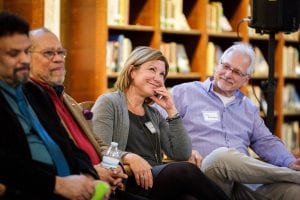
“..or not,” adds Tag. “Some people trust and follow the conference, not whether they have heard of a certain author.” The conference has a healthy dose of new goers each year, but also has folks who have attended every year. Attendees are teachers, librarians, writers, illustrators, people wanting to break into the field, students, and people who just love books. There are a few young adults who come every year, accompanied by what Johnson called “giddy parents.” There are some who call it their “Western Homecoming” event, and others who regularly give the conference as a gift.
Extending the access to authors outside of the conference into the student community has been an extra piece that is now getting more focus. Because it is dependent on the authors’ time and schedules, the author contracts for 2021 include a student interaction element. Because it takes logistical support and funding, there is a new endowment fund being organized called “Speakers in Schools.”
It keeps coming back to enrichment. “My favorite part is the unexpected phrase or thought that a speaker shares. You never know what it is going to be or when it is going to happen, you might just overhear it in smaller conversation—what is that personal takeaway I will glean?” says Tag.
Johnson marvels at the success of the conference, and takes joy in the community of attendees it has built. “There is something spirited about literature for children,” says Johnson, “and it keeps them coming back.”
Early-bird registration opens each year in October for the main conference.
Find more information on the free, accompanying nErDcamp “unconference,” happening this year on March 1, 2020.
Donations to support the CLC or the Speakers in Schools initiative can be made through links along the right sidebar of the Children’s Literature Conference website.






























